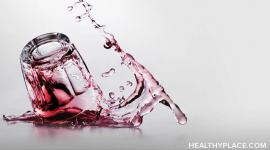Alcohol Relapse and Craving
A Commentary by Enoch Gordis, M.D., Director of the National Institute on Alcohol Abuse and Alcoholism
The primary goal of alcoholism treatment, as in other areas of medicine, is to help the patient to achieve and maintain long-term remission of disease. For alcohol addicts, remission means the continuous maintenance of sobriety. There is continuing and growing concern among clinicians about the high rate of relapse among their alcoholic patients, and the increasingly adverse consequences of continuing disease. For this reason, preventing relapse is, perhaps, the fundamental issue in alcoholism treatment today.
Modern science, both biological and behavioral, has explored a number of different leads in the quest to prevent relapse. These range from pharmacological agents, such as the serotonin uptake blockers and disulfiram, to behavior constructs, such as cue extinction and skills training. Although these are promising leads that one day may improve significantly the chances of alcohol dependent persons to continue long-term sobriety, there are no definitive answers yet to this troubling aspect of alcoholism treatment.
For example, the interesting work on pharmacological agents to help prevent relapse evolved from the study of brain receptors and suggests that serotonin may diminish an alcoholic's desire or craving for alcohol. This research, however, must be confirmed by properly conducted controlled clinical trials before widespread application to treating alcohol dependency. Similarly, behavioral approaches have been well described by the talented scientists who undertook the initial studies; however, evidence of the effectiveness of these approaches in preventing relapse in dependent drinkers has not been documented in adequate controlled trials.
Although we are not yet at the point where we can state definitively what works best in preventing relapse, I firmly believe that we are on the brink of a new period in alcoholism treatment research that ultimately will help us to develop this knowledge. For the present, therapists should examine critically the evidence for new nonpharmacological approaches before initiating them. Similarly, good clinical wisdom should discourage the use of unproven pharmacological agents to prevent alcoholism relapse until the efficacy of using such agents in this regard is proven.
Other Alcohol Relapse Articles
APA Reference
Staff, H.
(2021, December 15). Alcohol Relapse and Craving, HealthyPlace. Retrieved
on 2026, January 18 from https://www.healthyplace.com/addictions/alcoholism/alcohol-relapse-and-craving




